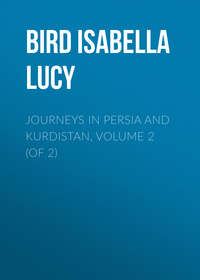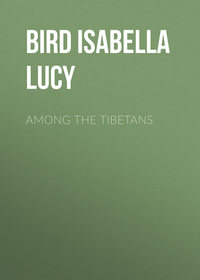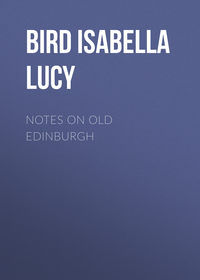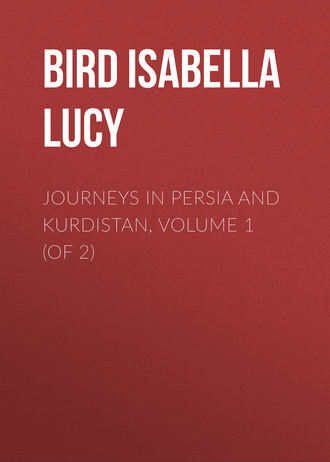 полная версия
полная версияJourneys in Persia and Kurdistan, Volume 1 (of 2)
Gutenberg-tm work. The Foundation makes no representations concerning the copyright status of any work in any country outside the United
States.
1. E. Unless you have removed all references to Project Gutenberg:
1. E.1. The following sentence, with active links to, or other immediate access to, the full Project Gutenberg-tm License must appear prominently whenever any copy of a Project Gutenberg-tm work (any work on which the phrase "Project Gutenberg" appears, or with which the phrase "Project
Gutenberg" is associated) is accessed, displayed, performed, viewed, copied or distributed:
This eBook is for the use of anyone anywhere at no cost and with almost no restrictions whatsoever. You may copy it, give it away or re-use it under the terms of the Project Gutenberg License included with this eBook or online at www.gutenberg.net
1. E.2. If an individual Project Gutenberg-tm electronic work is derived from the public domain (does not contain a notice indicating that it is posted with permission of the copyright holder), the work can be copied and distributed to anyone in the United States without paying any fees or charges. If you are redistributing or providing access to a work with the phrase "Project Gutenberg" associated with or appearing on the work, you must comply either with the requirements of paragraphs 1.E.1
through 1.E.7 or obtain permission for the use of the work and the
Project Gutenberg-tm trademark as set forth in paragraphs 1.E.8 or
1. E.9.
1. E.3. If an individual Project Gutenberg-tm electronic work is posted with the permission of the copyright holder, your use and distribution must comply with both paragraphs 1.E.1 through 1.E.7 and any additional terms imposed by the copyright holder. Additional terms will be linked to the Project Gutenberg-tm License for all works posted with the permission of the copyright holder found at the beginning of this work.
1. E.4. Do not unlink or detach or remove the full Project Gutenberg-tm
License terms from this work, or any files containing a part of this work or any other work associated with Project Gutenberg-tm.
1. E.5. Do not copy, display, perform, distribute or redistribute this electronic work, or any part of this electronic work, without prominently displaying the sentence set forth in paragraph 1.E.1 with active links or immediate access to the full terms of the Project
Gutenberg-tm License.
1. E.6. You may convert to and distribute this work in any binary, compressed, marked up, nonproprietary or proprietary form, including any word processing or hypertext form. However, if you provide access to or distribute copies of a Project Gutenberg-tm work in a format other than
"Plain Vanilla ASCII" or other format used in the official version posted on the official Project Gutenberg-tm web site (www.gutenberg.net), you must, at no additional cost, fee or expense to the user, provide a copy, a means of exporting a copy, or a means of obtaining a copy upon request, of the work in its original "Plain Vanilla ASCII" or other form. Any alternate format must include the full Project Gutenberg-tm
License as specified in paragraph 1.E.1.
1. E.7. Do not charge a fee for access to, viewing, displaying, performing, copying or distributing any Project Gutenberg-tm works unless you comply with paragraph 1.E.8 or 1.E.9.
1. E.8. You may charge a reasonable fee for copies of or providing access to or distributing Project Gutenberg-tm electronic works provided that
– You pay a royalty fee of 20 % of the gross profits you derive from
the use of Project Gutenberg-tm works calculated using the method
you already use to calculate your applicable taxes. The fee is
owed to the owner of the Project Gutenberg-tm trademark, but he
has agreed to donate royalties under this paragraph to the
Project Gutenberg Literary Archive Foundation. Royalty payments
must be paid within 60 days following each date on which you
prepare (or are legally required to prepare) your periodic tax
returns. Royalty payments should be clearly marked as such and
sent to the Project Gutenberg Literary Archive Foundation at the
address specified in Section 4, "Information about donations to
the Project Gutenberg Literary Archive Foundation."
– You provide a full refund of any money paid by a user who notifies
you in writing (or by e-mail) within 30 days of receipt that s/he
does not agree to the terms of the full Project Gutenberg-tm
License. You must require such a user to return or
destroy all copies of the works possessed in a physical medium
and discontinue all use of and all access to other copies of
Project Gutenberg-tm works.
– You provide, in accordance with paragraph 1.F.3, a full refund of any
money paid for a work or a replacement copy, if a defect in the
electronic work is discovered and reported to you within 90 days
of receipt of the work.
– You comply with all other terms of this agreement for free
distribution of Project Gutenberg-tm works.
1. E.9. If you wish to charge a fee or distribute a Project Gutenberg-tm electronic work or group of works on different terms than are set forth in this agreement, you must obtain permission in writing from both the Project Gutenberg Literary Archive Foundation and Michael
Hart, the owner of the Project Gutenberg-tm trademark. Contact the
Foundation as set forth in Section 3 below.
1. F.
1. F.1. Project Gutenberg volunteers and employees expend considerable effort to identify, do copyright research on, transcribe and proofread public domain works in creating the Project Gutenberg-tm collection. Despite these efforts, Project Gutenberg-tm electronic works, and the medium on which they may be stored, may contain
"Defects," such as, but not limited to, incomplete, inaccurate or corrupt data, transcription errors, a copyright or other intellectual property infringement, a defective or damaged disk or other medium, a computer virus, or computer codes that damage or cannot be read by your equipment.
1. F.2. LIMITED WARRANTY, DISCLAIMER OF DAMAGES – Except for the "Right of Replacement or Refund" described in paragraph 1.F.3, the Project
Gutenberg Literary Archive Foundation, the owner of the Project
Gutenberg-tm trademark, and any other party distributing a Project
Gutenberg-tm electronic work under this agreement, disclaim all liability to you for damages, costs and expenses, including legal fees. YOU AGREE THAT YOU HAVE NO REMEDIES FOR NEGLIGENCE, STRICT
LIABILITY, BREACH OF WARRANTY OR BREACH OF CONTRACT EXCEPT THOSE
PROVIDED IN PARAGRAPH 1.F.3. YOU AGREE THAT THE FOUNDATION, THE
TRADEMARK OWNER, AND ANY DISTRIBUTOR UNDER THIS AGREEMENT WILL NOT BE
LIABLE TO YOU FOR ACTUAL, DIRECT, INDIRECT, CONSEQUENTIAL, PUNITIVE OR
INCIDENTAL DAMAGES EVEN IF YOU GIVE NOTICE OF THE POSSIBILITY OF SUCH
DAMAGE.
1. F.3. LIMITED RIGHT OF REPLACEMENT OR REFUND – If you discover a defect in this electronic work within 90 days of receiving it, you can receive a refund of the money (if any) you paid for it by sending a written explanation to the person you received the work from. If you received the work on a physical medium, you must return the medium with your written explanation. The person or entity that provided you with the defective work may elect to provide a replacement copy in lieu of a refund. If you received the work electronically, the person or entity providing it to you may choose to give you a second opportunity to receive the work electronically in lieu of a refund. If the second copy is also defective, you may demand a refund in writing without further opportunities to fix the problem.
1. F.4. Except for the limited right of replacement or refund set forth in paragraph 1.F.3, this work is provided to you 'AS-IS' WITH NO OTHER
WARRANTIES OF ANY KIND, EXPRESS OR IMPLIED, INCLUDING BUT NOT LIMITED TO
WARRANTIES OF MERCHANTIBILITY OR FITNESS FOR ANY PURPOSE.
1. F.5. Some states do not allow disclaimers of certain implied warranties or the exclusion or limitation of certain types of damages.
If any disclaimer or limitation set forth in this agreement violates the law of the state applicable to this agreement, the agreement shall be interpreted to make the maximum disclaimer or limitation permitted by the applicable state law. The invalidity or unenforceability of any provision of this agreement shall not void the remaining provisions.
1. F.6. INDEMNITY – You agree to indemnify and hold the Foundation, the trademark owner, any agent or employee of the Foundation, anyone providing copies of Project Gutenberg-tm electronic works in accordance with this agreement, and any volunteers associated with the production, promotion and distribution of Project Gutenberg-tm electronic works, harmless from all liability, costs and expenses, including legal fees, that arise directly or indirectly from any of the following which you do or cause to occur: (a) distribution of this or any Project Gutenberg-tm work, (b) alteration, modification, or additions or deletions to any
Project Gutenberg-tm work, and (c) any Defect you cause.
Section 2. Information about the Mission of Project Gutenberg-tm
Project Gutenberg-tm is synonymous with the free distribution of electronic works in formats readable by the widest variety of computers including obsolete, old, middle-aged and new computers. It exists because of the efforts of hundreds of volunteers and donations from people in all walks of life.
Volunteers and financial support to provide volunteers with the assistance they need are critical to reaching Project Gutenberg-tm's goals and ensuring that the Project Gutenberg-tm collection will remain freely available for generations to come. In 2001, the Project
Gutenberg Literary Archive Foundation was created to provide a secure and permanent future for Project Gutenberg-tm and future generations.
To learn more about the Project Gutenberg Literary Archive Foundation and how your efforts and donations can help, see Sections 3 and 4
and the Foundation web page at http://www.pglaf.org.
Section 3. Information about the Project Gutenberg Literary Archive
Foundation
The Project Gutenberg Literary Archive Foundation is a non profit
501(c)(3) educational corporation organized under the laws of the state of Mississippi and granted tax exempt status by the Internal
Revenue Service. The Foundation's EIN or federal tax identification number is 64-6221541. Its 501(c)(3) letter is posted at http://pglaf.org/fundraising. Contributions to the Project Gutenberg
Literary Archive Foundation are tax deductible to the full extent permitted by U.S. federal laws and your state's laws.
The Foundation's principal office is located at 4557 Melan Dr. S.
Fairbanks, AK, 99712., but its volunteers and employees are scattered throughout numerous locations. Its business office is located at
809 North 1500 West, Salt Lake City, UT 84116, (801) 596-1887, email business@pglaf.org. Email contact links and up to date contact information can be found at the Foundation's web site and official page at http://pglaf.org
For additional contact information:
Dr. Gregory B. Newby
Chief Executive and Director
gbnewby@pglaf.org
Section 4. Information about Donations to the Project Gutenberg
Literary Archive Foundation
Project Gutenberg-tm depends upon and cannot survive without wide spread public support and donations to carry out its mission of increasing the number of public domain and licensed works that can be freely distributed in machine readable form accessible by the widest array of equipment including outdated equipment. Many small donations
($1 to $5,000) are particularly important to maintaining tax exempt status with the IRS.
The Foundation is committed to complying with the laws regulating charities and charitable donations in all 50 states of the United
States. Compliance requirements are not uniform and it takes a considerable effort, much paperwork and many fees to meet and keep up with these requirements. We do not solicit donations in locations where we have not received written confirmation of compliance. To
SEND DONATIONS or determine the status of compliance for any particular state visit http://pglaf.org
While we cannot and do not solicit contributions from states where we have not met the solicitation requirements, we know of no prohibition against accepting unsolicited donations from donors in such states who approach us with offers to donate.
International donations are gratefully accepted, but we cannot make any statements concerning tax treatment of donations received from outside the United States. U.S. laws alone swamp our small staff.
Please check the Project Gutenberg Web pages for current donation methods and addresses. Donations are accepted in a number of other ways including including checks, online payments and credit card donations. To donate, please visit: http://pglaf.org/donate
Section 5. General Information About Project Gutenberg-tm electronic works.
Professor Michael S. Hart is the originator of the Project Gutenberg-tm concept of a library of electronic works that could be freely shared with anyone. For thirty years, he produced and distributed Project
Gutenberg-tm eBooks with only a loose network of volunteer support.
Project Gutenberg-tm eBooks are often created from several printed editions, all of which are confirmed as Public Domain in the U.S.
unless a copyright notice is included. Thus, we do not necessarily keep eBooks in compliance with any particular paper edition.
Most people start at our Web site which has the main PG search facility:
http://www.gutenberg.net
This Web site includes information about Project Gutenberg-tm, including how to make donations to the Project Gutenberg Literary
Archive Foundation, how to help produce our new eBooks, and how to subscribe to our email newsletter to hear about new eBooks.
1
I left England with a definite object in view, to which others were subservient, but it is not necessary to obtrude it on the reader.
2
According to the returns for 1889, the British tonnage entering the Bushire roadstead was 111,745 out of 118,570 tons, and the imports from British territory amounted to a value of £744,018 out of £790,832. The exports from Bushire in the same year amounted to £535,076, that of opium being largely on the increase. Among other things exported are pistachio nuts, gum, almonds, madder, wool, and cotton. Regarding gum, the wars in the Soudan have affected the supply of it, and Persia is reaping the benefit, large quantities now being collected from certain shrubs, especially from the wild almond, which abounds at high altitudes. The drawback is that firewood and charcoal are becoming consequently dearer and scarcer. The gum exported in 1889 was 7472 cwts., as against 14,918 in 1888, but the value was more than the same.
The imports into Bushire, as comparing 1889 with 1888, have increased by £244,186, and the exports by £147,862. The value of the export of opium, chiefly to China, was £231,521, as against £148,523 in 1888.
3
"The Karun River," Hon. G. Curzon, M.P., Proceedings of R.G.S., September 1890.
4
Sir A. H. Layard describes the interior of the domed building as consisting of two chambers, the outer one empty, and the inner one containing the Prophet's tomb, built of bricks covered with white stucco, and enclosed in a wooden case or ark, over which is thrown a large blue cloth, fringed with yellow tassels, the name of the donor being inscribed in Hebrew characters upon it. – Layard's Early Adventures, vol. i. p. 214.
5
A year later in Kurdistan, the zaptiehs, all time-expired soldiers and well set up soldierly men, wore neat, serviceable, dark blue braided uniforms, and high riding-boots.
6
I heard that the Shah had prohibited this "Dead March" to Kerbela, on account of the many risks to the public health involved in it, but nearly a year later, in Persian Kurdistan, I met, besides thousands of living pilgrims, a large caravan of the dead.
7
Six months later a Bakhtiari chief, a bigoted Moslem, said to me at the conclusion of an earnest plea for European medical advice, "Yes, Jesus was a great prophet; send us a Hakīm in His likeness," and doubtless the nearer that likeness is the greater is the success.
8
The entire trade of Baghdad is estimated at about £2,500,000, of which the Persian transit trade is nearly a quarter. The Persian imports and exports through Baghdad are classified thus: Manufactured goods, including Manchester piece goods, and continental woollens and cottons, 7000 to 8000 loads. Indian manufactures, 1000 loads. Loaf sugar, chiefly from Marseilles, 6000 loads. Drugs, pepper, coffee, tea, other sugars, indigo, cochineal, copper, and spelter, 7000 loads. The Persian exports for despatch by sea include wool, opium, cotton, carpets, gum, and dried fruits, and for local consumption, among others, tobacco, roghan (clarified butter), and dried and fresh fruits, with a probable bulk of from 12,000 to 15,000 loads.
9
I had given up the idea of travelling in Persia, and was preparing to leave India for England, when an officer, with whom I was then unacquainted, and who was about to proceed to Tihran on business, kindly offered me his escort. The journey turned out one of extreme hardship and difficulty, and had it not been for his kindness and efficient help I do not think that I should have accomplished it.
10
I present my diary letters much as they were written, believing that the details of travel, however wearisome to the experienced traveller, will be interesting to the "Untravelled Many," to whom these volumes are dedicated.
11
Another interest, however, is its connection with many of the romantic legends still told of Khosroe Parviz and his beautiful queen, complicated with love stories concerning the sculptor Farhad, to whom the Persians attribute some of their most famous rock sculptures. One of the most romantic of these legends is that Farhad loved Shirin, and that Khosroe was aware of it, and promised to give her to him if he could execute the impossible task of bringing to the city the abundant waters of the mountains. Farhad set himself to the Herculean labour, and to the horror of the king nearly accomplished it, when Khosroe, dreading the advancing necessity of losing Shirin or being dishonoured, sent to inform him of her death. Being at the time on the top of a precipice, urging on the work of the aqueduct, the news filled him with such ungovernable despair that he threw himself down and was killed.
12
The Pashalik of Zohab, now Persian territory, is fully described by Major Rawlinson in a most interesting paper in The Journal of the Royal Geographical Society, vol. ix. part 1, p. 26.
13
Gen. x. 11; 2 Kings xviii. 11; 1 Chron. v. 26.
14
See Sir A. H. Layard's Early Adventures, vol. i. p. 217.
15
I had the pleasure of seeing Agha Hassan at the British Legation at Tihran. He is charming, both in appearance and manner, a specimen of the highest type of Arab good breeding, with a courteous kindliness and grace of manner, and is said to have made a very favourable impression when he went to England lately to be made a C.M.G. Both father and son wear the Arab dress, in plain colours but rich materials, with very large white turbans of Damascus embroidery in gold silk, and speak only Arabic and Persian.
16
A journey of nine months in Persia, chiefly in the west and north-west, convinced me that this aspect of ruin and decay is universal.
17
The reader curious as to this and other customs of modern Persia should read Dr. Wills's book, The Land of the Lion and the Sun.
18
A rug only eight feet by five feet was given me by a Persian in Tihran, which was valued for duty at Erzerum at £3 the square yard, with the option of selling it to the Custom-house at that price, which implies that its value is from 70s. to 80s. per yard. It has a very close pile, nearly as short and fine as velvet.
19
For the Sasanian inscriptions, vide Early Sasanian Inscriptions, by E. Thomas. The great work published by the French Government, Voyage en Perse, Paris, 1851, by Messieurs Flandin et Coste, contains elaborate and finely-executed representations of these rock sculptures, which are mostly of the time of the later Sasanian monarchs.
20
This custom, supposed to be an allusion to our Lord and His mother, is described by Morier in his Second Journey in Persia.
21
Jairud exports fruit to Kûm and even to Tihran, and in the autumn I was interested to find that the best pears and peaches in the Hamadan market came from its luxuriant orchards.
22
I spent two days at Kûm five weeks later, and saw the whole of it in disguise, and in order to attain some continuity of description I put my two letters together.
23
The altitude of Demavend is variously stated.
24
I remained for three weeks as Sir H. Drummond Wolff's guest at the British Legation, receiving from him that courtesy and considerate kindness which all who have been under his roof delight to recall. I saw much of what is worth seeing in Tihran, including the Shah and several of the Persian statesmen, and left the Legation with every help that could be given for a long and difficult journey into the mountains of Luristan.
25
A volume of travels in Persia would scarcely be complete without some slight notice of the northern capital; but for detailed modern accounts of it the reader should consult various other books, especially Dr. Wills' and Mr. Benjamin's, if he has not already done so.
26
There are only two roads, properly so called, in Persia, though in the summer wheeled carriages with some assistance can get from place to place over several of the tracks. These two are the road from Kûm to the capital, formerly described, and one from Kasvin to the capital, both under 100 miles in length. Goods are everywhere carried on the backs of animals.
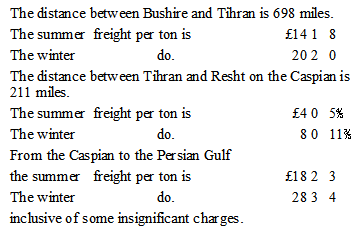
The time taken for the transit of goods between Bushire and Tihran is forty-two days, and between Resht and Tihran twelve days.
The cost per ton by rail, if taken at Indian rates, between the Gulf and the Caspian, would be £3:11:10.
On these figures the promoters of railway enterprise in Persia build their hopes.
27
Some of the Bakhtiari khans or princes, with their families, are kept by the Shah as hostages in and round Tihran for the loyalty of their tribes, the conquest of these powerful nomads not being so complete as it might and possibly will be.
28
On the eve of the day, the last of a festival of ten days, the common people kindle rows of bonfires and leap over them; and, though not on the same day, but on the night of the 25th of February, sacred in the Armenian Church as the day of the presentation of our Lord in the temple, large bonfires are lighted on the mud roofs of the Armenians of the Persian and Turkish cities, and the younger members of the households dance and sing and leap through the flames. Meanwhile the Moslems close their windows, so that the sins which the Christians are supposed to be burning may not enter. Whether these "Beltane fires" are a relic of the ancient fire worship or of still older rites may be a question. Among the Christians the custom is showing signs of passing away.


